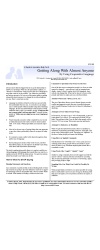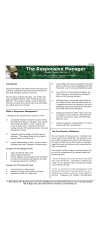No Introverts Need Apply For Leadership?
When leaders are profiled in the media, they tend to appear as outgoing and extroverted, so we tend to associate effective leadership with outgoing personality types. This is misleading since the behavior of leaders in the media is not necessarily a true reflection of their personalities.
While it may be the case that people who are extroverted gain a leg up on being promoted to leadership positions, it does not mean they will be more effective when in leadership positions.
It’s easier to see that being outgoing is not an essential characteristic of effective leadership if you look at informal leaders — for example clubhouse leaders on sports teams. It is often the case that these leaders are characterized as taciturn, speaking primarily when necessary, hence the term “quiet leader”. Their “quietness” is often a major strength, since when the DO speak, people tend to listen.
However, it’s important to note that an effective leader, informal or otherwise relies heavily on his or her ability to influence and inspire others. People who are so introverted that they lose their ability to influence others are going to be ineffective in leadership roles, but, on the other hand, extroverted and outgoing people can be SO extreme that they, too degrade their abilities to influence others.
Both introverts and extroverts can lead effectively. It may, however, boil down to how leaders manage their personality styles (in this case introverted versus extroverted) that determines success. Many introverts who end up as effective leaders have learned to modify their behaviors to appear to be more outgoing and friendly. Inside they may remain inward looking while interacting with people in outgoing ways when the situation calls for it.






